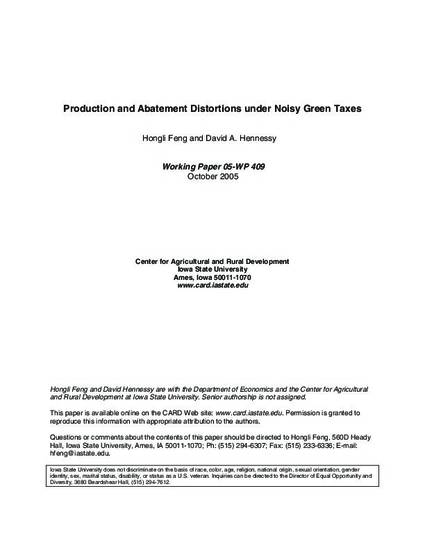
A pollution regulator seeking to maximize social surplus can be viewed as facing two efficiency problems. One is that, given abatement technology investment decisions, it should attempt to ensure that firms which should produce do produce and firms which should not produce do not produce. This ex-post efficiency problem is not trivial when there is noise concerning the extent of environmental damage a firm does. We use a Bayesian information framework to show that the regulator may find it efficient to tax a firm that reads as a high (low) damage polluter at less (more) than the damage reading. Unfortunately when an abatement decision has to be made, this ex-post efficient tax system also dampens the incentive to abate. In the absence of wrong-firm concerns, a regulator can solve the abatement problem by an ex ante declaration that taxes will not be adjusted for signal noise. However, the regulator has a commitment problem as such taxes may not be ex-post efficient. The most appropriate policy may involve a combination of instruments.
Available at: http://works.bepress.com/hongli-hennessy/43/

This is a working paper of an article published as Feng, H., and D.A. Hennessy. “Production and Abatement Distortions under Noisy Green Taxes”, Journal of Public Economic Theory, 2009 (February), 11(1): 37-53. doi:10.1111/j.1467-9779.2008.01405.x. Posted with permission.